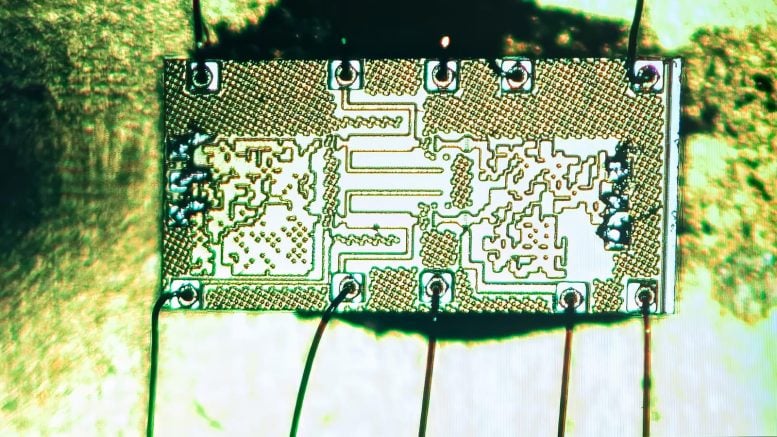
Artificial intelligence startup Ubicept Inc. says it has developed a new kind of computer vision technology that’s able to process image data at the photon level to create machines that can “see” with unprecedented perception, clarity and precision.
The startup is showcasing its technology this week at the 2025 CES consumer electronics show in Las Vegas, where it’s demonstrating its superiority to existing computer visions in challenging scenarios such as autonomous vehicle navigation in the dark and robots operating in low-light conditions.
According to Ubicept, existing computer vision systems struggle to work properly in conditions where there is insufficient lighting available. The problem stems from the constraints of the cameras and image sensor hardware those systems rely on, which struggle to capture fast movement in the dark, resulting in blurry or noisy images.
Ubicept changes that by using a combination of proprietary software and Single-Photon Avalanche Diode or SPAD sensors, which are the same technology found in iPhone LiDAR systems. It says this combination can make existing image sensors far more powerful, enabling “crystal-clear imaging” in extreme low light conditions without any motion blur, and high-speed motion capture without light streaking.
In addition, the system can capture precise images in scenarios where there are bright and dark areas in the same environment, and ensure precise synchronization with lights such as LEDs and lasers to support the use of 3D applications.
Ubicept co-founder and Chief Executive Sebastian Bauer insisted that his company has developed the “optimal” imaging system. “By processing individual photons, we’re enabling machines to see with astounding clarity across all lighting conditions simultaneously, including pitch darkness, bright sunlight, fast motion, and 3D sensing,” he said.
The startup is making the technology available through its Flexible Light Acquisition and Representation Engine or FLARE Development Kit. It combines a one-megapixel, full-color SPAD sensor with the company’s proprietary sensor-agnostic processing software, and it can reportedly work with any kind of camera or image sensor.
In this way, Ubicept says its technology can enable any autonomous vehicle, robot, drone, machine or camera system to see with unrivaled precision in any environment.
Ubicept’s other co-founder, Chief Technology Officer Tristan Swedish, said the next wave of AI systems that have real-world applications will be hugely reliant on computer vision to view their surroundings, so those systems need to be much more reliable.
“Today’s cameras were designed for humans, and using standard image data for computer vision systems won’t get us there,” he said. “Ubicept’s technology bridges that gap, enabling computer vision systems to achieve ideal perception. Our mission is to create a scalable, software-defined camera system that powers the future of computer vision.”
Image: SiliconANGLE/Microsoft Designer
Your vote of support is important to us and it helps us keep the content FREE.
One click below supports our mission to provide free, deep, and relevant content.
Join our community on YouTube
Join the community that includes more than 15,000 #CubeAlumni experts, including Amazon.com CEO Andy Jassy, Dell Technologies founder and CEO Michael Dell, Intel CEO Pat Gelsinger, and many more luminaries and experts.
THANK YOU








Leave a Comment